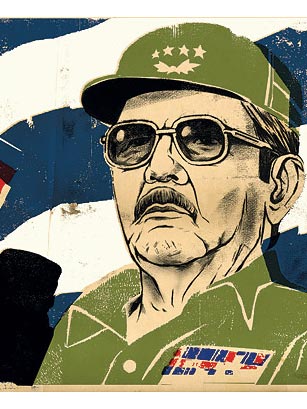
Getting Ready for a Cuba After Fidel
It used to be that if you spoke about Cuba and said "Castro," you could be talking only about Fidel. What other Castro was there who mattered? It was all too easy to forget he had brothers, and even if you remembered that fact, you would shrug. Whenever Fidel walked into a room at a Havana function, all eyes turned to him; the women's hearts went aflutter; the men immediately put their egos in check. But there was often another Castro in the corner, El Jefe's younger brother Raúl. For decades he has been companion, fellow fighter, Defense Minister. Yet really, what was the point of paying attention to him?
But in the middle of 2006, when Fidel became undeniably ill (U.S. officials believe he has terminal cancer), someone had to be designated acting Jefe. And the point of Raúl became clear. The Castro no one noticed became the Castro everyone had to know.
Will he lead Cuba into a different future? It's too early to tell. Five years younger than Fidel, Raúl, 75, has not restructured the regime in the past few months. Indeed, the military seems to be more ensconced than ever in its prerogatives and powers. As Interim President, Raúl has indicated that once Fidel is gone, there will simply be continuity, not a succession of new policies (although some suspect Raúl will pursue Chinese-style economic reforms). He has noticeably let a few dissidents out of prison — even if not the most troublesome. He also smiles more often than his brother.
In December, Fidel was too ill to attend the four-months-delayed celebration of his 80th birthday. And so Raúl gave the keynote speech instead. He surprised some observers when he declared that "we are willing to resolve at the negotiating table the long-standing dispute between the United States and Cuba." However, at the close of the speech, he said, "Long live Fidel!" — emphatically.